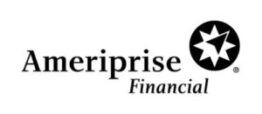
Stuart G. Dickinson, of Highland Park, Texas, a stockbroker formerly registered with WFG Investments, Inc., has been permanently barred from associating with any Financial Industry Regulatory Authority (FINRA) member firm in any capacity per a FINRA Office of Hearing Officers’ Default Decision containing findings that Dickinson made unsuitable investment recommendations to customers. Department of Enforcement v. Stuart G. Dickinson, No. 2012033286901 (Oct. 21, 2016).
According to the Decision, between October and December of 2007, seven WFG customers collectively purchased $1,000,000.00 of ATM Alliance, LP (ATMA), pursuant to Dickinson’s investment recommendations. Apparently, the investments were recommended by Dickinson despite him not having first engaged in a reasonable due diligence process on the securities.
Apparently, ATM Alliance was constructed through Dickinson after retrieving approval from WFG’s compliance personnel, where Dickinson proposed to his firm a private placement investment for ATMA, where the business model of ATMA was to generate income from the acquisition and operation of ATM machines. Apparently, the investment was formulated, where Dickinson and a supervising principal, Schneiter, became the general partner. The Decision stated that interests sold to prospective investors would be deemed private securities transactions, which WFG permitted.
Subsequently, prospective investors were informed by Dickinson that ATM Alliance would be buying ATMs and contracting with ATM Financial Services for the servicing, leasing, and management of such ATMs at supermarkets, convenience stores, and other locations. Prospective investors were also informed that the ATMs would generate revenue which would flow to the investors, as well as cover the leasing and servicing fees.
The Decision stated that Dickinson’s due diligence was incomplete in several ways. For example, the Decision stated that Dickinson never verified investors who seemingly made purchases of ATMs through ATM Alliance. Additionally, Dickinson did not confirm details from those who claimed to be knowledgeable regarding the entity that was to service and manage the ATMs purchased through Alliance.
The Decision stated that if Dickinson conducted a reasonable and adequate investigation of the issuer, he would have uncovered red flags which could demonstrate that the investment was a fraud. For example, the Decision stated that most of the agreements for ATM retail spaces to be leased contained handwritten terms, with signatures which failed to match up with names that were printed in the agreements. The Decision also revealed that the offering memorandum requirements concerning lease arrangements terms were inconsistent with several of the lease agreements that were utilized.
Further, the offering memorandum supposedly had requirements for performance history to be verified, but such information provided was stale and otherwise lacking of performance dated six months before ATM Alliance purchased such machines. The Decision stated that the offering memorandum also called for each ATM to have a minimum of four-hundred transactions per month before the purchase of such ATMs by ATM Alliance; however, such history provided by ATM Financial Services indicated that performance was stale and several of the ATMs purchased had underperformed.
The Decision stated that the ATM Financial Services was a fraudulent Ponzi scheme which never utilized investor funds to purchase ATMs. Rather, earlier investors were provided with monies which purportedly represented fake returns, as such money came from later investors. These earlier investors were later convicted of wire fraud, and conspiracy to commit wire fraud, while the investors that Dickinson solicited and sold investments to all incurred losses.
FINRA found that Dickinson’s lack of proper due diligence concerning ATM Alliance caused him to be unaware that the investment was a fraud and therefore unsuitable for investors regardless of the investors’ financial circumstances or investment objectives. As such, FINRA found that Dickinson’s conduct was violative of NASD Rules 3110 and 2310.
FINRA Public Disclosure reveals that Dickinson has been subject to five incidents. On April 15, 2012, Dickinson settled a customer initiated investment related arbitration action for $130,000.00 in damages based upon allegations against Dickinson of misrepresentation, fraud, unsuitability. The customer additionally claimed that Dickinson’s firm failed to supervise Dickinson’s activity, which consisted of effecting unsuitable transactions in exchange traded funds and private placements. Dickinson settled a customer initiated investment related arbitration action on October 15, 2012, for $35,000.00 in damages based upon allegations of unsuitability. Dickinson was terminated from WFG Investments on September 25, 2013.
Guiliano Law Group
Our practice is limited to the representation of investors. We accept representation on a contingent fee basis, meaning there is no cost to you unless we make a recovery for you. There is never any charge for a consultation or an evaluation of your claim. For more information, contact us at (877) SEC-ATTY.








